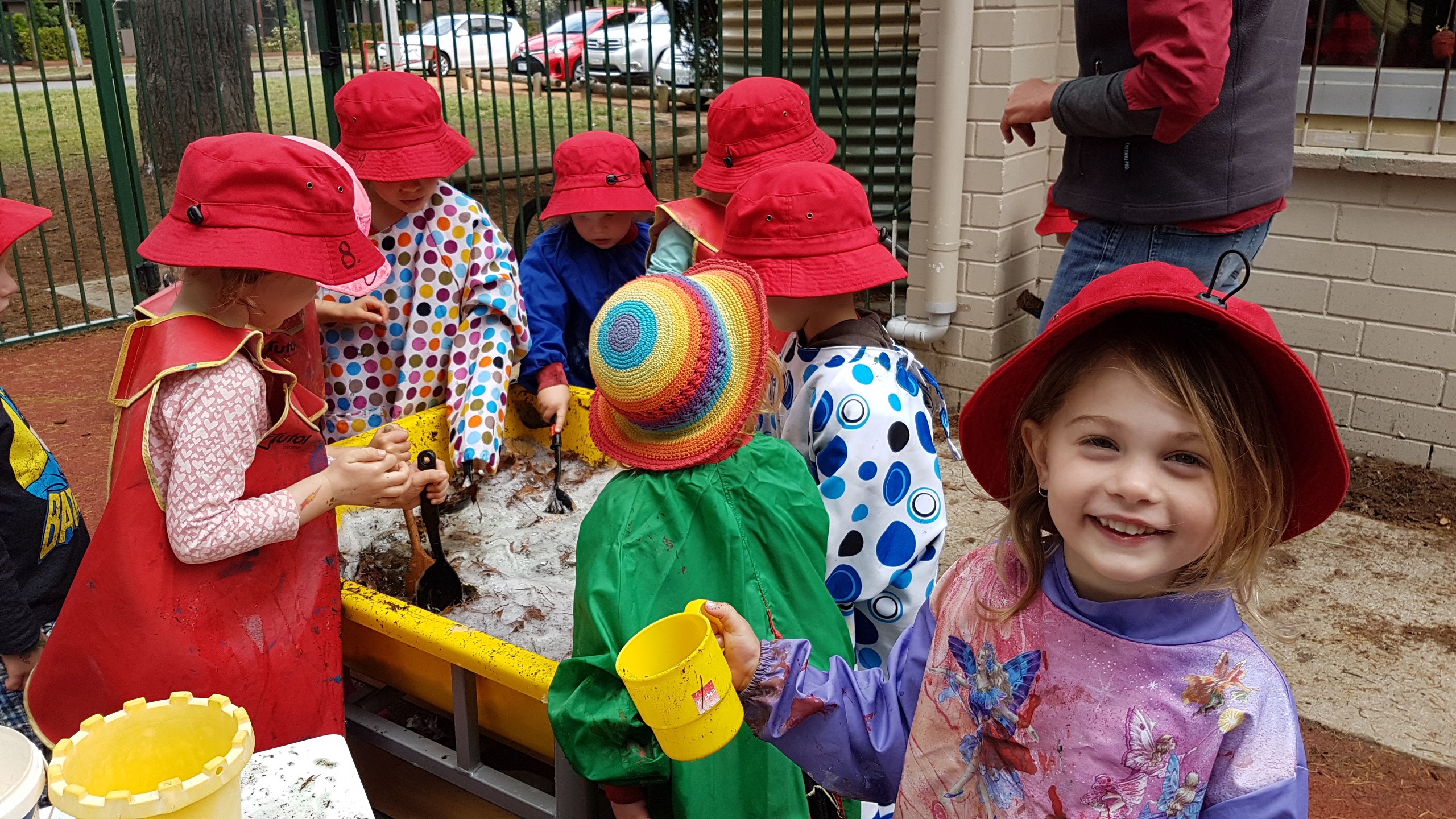Visit the Spielwelt German Parents Association for more great children’s programs in German in Canberra 

How much German can I expect my child to learn
Children who already have some German comprehension will be enhancing their vocabulary, learning new songs, new concepts and all the things one expects of a good preschool. Parents are often delighted to hear all the new songs and vocabulary their child is coming home with.
For children who are new to German, here is what you can expect:
Children in the 0-5 year age range are in language acquisition mode developmentally. This is by far the best time in life to expose them to a second language (but this should not deter you from exposing them to it at ANY age). Indeed, all long-standing research into bilingualism shows that learning a second language also enriches and enhances the acquisition and use of the first language, not to mention the improvements to the development of the brain.
Often parents ask us “how much German will my child learn?”. This is hard to answer precisely. Some children find it easy to pick up languages, some find it harder – just like adults. It also depends a lot on how much German is used and practised at home.
For children joining the GAP without any prior German knowledge, we see everything from becoming fluent within a year to only just understanding some basic words. Some children will learn best through singing, others through hearing or reading stories, others through listening, and they will all express their learning differently.
Please keep this in mind when assessing your child’s progress in German or when you compare your child to other children. It can be difficult for the non-German speaking parent to assess their child’s progress.
Usually, language learners of all ages first develop a passive understanding of the language before they begin an active use of it. The best method to assess your child’s comprehension levels is to check with the teachers.
Having said all this, we would still like to share our experience with you which should give you an impression of what you can expect your child to learn.
At the GAP, all children will be exposed to the sound of the language, German culture, and will get a feeling for differences between countries in general. They benefit immensely, even if no obvious language learning occurs.
After one year at the GAP without prior knowledge of German, we find that most children understand the routine words and expressions like: morning circle, hand washing and drying, putting on hats, eating lunch and morning tea; also the names of a few colours, some parts of the body or items of clothing; the children should be able to count in German and be able to sing a variety of German songs.
Usually, parents report hearing snippets of German songs and sometimes sporadic words or even short phrases at home, which is an excellent sign your child is enjoying their experience! Don’t worry if you don’t hear any of these, however, as just like adults, some children make a distinction between environments to moderate their language use, which is also perfectly natural.
After one year at GAP, we also usually see occasional use of German words or phrases interspersed into regular English conversation (like “I’m going Haendewaschen now!”). We definitely always see participation in routines in classroom, following basic instructions in German, figuring out the rules of a game like: “If I am wearing something green, then it is my turn to go and wash my hands,” etc.. We are delighted to hear children answering German questions in English or German, and see their participation in sport and games when instructed in German. These are all things our teachers will be watching for to assess the children’s progress.
In general, children will learn more German if:
- they enjoy being at the GAP and relate to the teachers and children
- they are able to focus and concentrate on an activity (we teach and reinforce this important life skill at GAP too)
- they are exposed to German outside the GAP
- they are able to figure out the meaning of a sentence from context even if they don’t understand every word
- they enjoy singing and reading
- their family is enthusiastic about German (best case is that the adults learn German themselves – your children will look at you as their role model and will be more motivated to learn German themselves).
This is why we not only run a “language course” but also teach the children lots of life-long learning skills and aim to settle them as a happy member of our group. And likewise you can help your child to learn a language in many ways, even if you don’t speak German yourself.
Our main Spielwelt website has lots more information about raising children bilingually, and what your options are for learning German after GAP on their Learning German in Canberra pages!